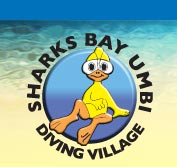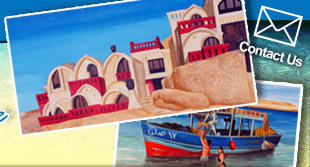|
TRAVEL AND VISAS
From the 1st March all international flights departing from Egypt, regardless of the destination and nationality, will be subject to the same EU restrictions on liquids allowed into the cabin. Passengers may carry liquids in their hand luggage but only within single containers not exceeding 100 ml and must be placed in clear plastic zip-top bag measuring 20 x 20 cm - only one bag per passenger. Medication in liquid form is allowed as long as you can provide a prescription in your name or a medical certificate. Baby food is also allowed as long as you will taste it if requested
Once you have passed through airport security can purchase liquids at the duty free shops provided that they don’t exceed customs restrictions.
Upon arrival, your passport must be valid at least for six months.
All foreigners entering Egypt (with the exception of those from South Africa, Zimbabwe, Malta and Arab countries) must obtain a visa either from an Egyptian consulate overseas or from the airport on arrival. The cost of a tourist visa at the airport is $15.
It is not necessary to get a full visa if you are planning to just stay within the Sinai between Sharm el Sheikh and Taba. Instead you can get a Sinai entry stamp, free of charge, allowing you to stay for 2 weeks. If you plan on going to Ras Mohammed (diving or by land) or Thistlegorm then an Egyptian visa is required. There is no way in obtaining a full visa once you are in Egypt.
MONEY AND BANKS
The national currency is the Egyptian Pound (LE). 1Le is equal to 100 piasters.
The diving centre and hotel accepts most international currencies as well as Visa and MasterCard (3% surcharge will be added to your bill) as do most places throughout Naama Bay and Sharm el Sheikh. ATM machines are every where and travellers’ cheques can be cashed at banks.
Opening hours for the Egyptian banks is usually Monday to Thursday 8.30 to 14.00 and then 18.00 to 21.00. For guests arriving into the country the banks at Cairo Airport and at the border with Israel are open 24 hours a day and banks at the ports open whenever a ship docks.
Back
THE LANGUAGE
The official language is Arabic. However, most locals who are active in tourism speak English, Russian, German and Italian as well. Useful Arabic words and phrases are:
Hello salaam ‘aleikum
Response wa aleikum es salaam
Good morning sabaaH el kheir
Response sabaaH el noor
Good evening misa’ el kheir
Response misa’ el noor
Goodbye ma’as salaama
Thank you shokran
Yes aywa
No la
Sorry assif / asfa
Back
FOOD
Egyptian meals are usually spiced or very sweet and are generally served with rice or bread. Most hotels offer international dishes and in general the food is safe to eat with the same precautions as you would take at home. Types of Egyptian food include:
Tahina – dip made from sesame seeds
Babaganough – tahina mixed with aubergine and garlic
Foul – mashed fava beans
Falafel / ta’amiyya – fried and mashed chick peas and spices made into a pattie
Mashi – various vegetables stuffed with mince and rice
Shish tawook – chicken kebab
Koshery – mixure of rice, lentils and noodles topped with fried onions and tomato sauce
Kofta – ground meat and spices skewered and grilled
Shawerma – stripes of lamb or chicken sliced from a spit
Back
TIPPING
Tipping or ‘baksheesh’ is generally expected in hotels and restaurants. In some restaurants a 12% service charge and 10% sales tax is included in the price so make sure you check the menu. The 10% sales tax is not applicable everywhere, but within most restaurants it is standard.
Back
CLIMATE
Egypt is an arid desert area and therefore usually hot and dry during the day but can be cool to cold at night. Wetsuits are necessary throughout the year - normally 4 mm in summer and 7 mm in winter.
Average temperatures around the year:
| |
Jan |
Feb |
Mar |
Apr |
May |
Jun |
Jul |
Aug |
Sep |
Oct |
Nov |
Dec |
midday (ºC) |
20 |
22 |
24 |
26 |
33 |
35 |
37 |
40 |
35 |
31 |
26 |
23 |
midnight (ºC) |
9 |
9 |
13 |
16 |
20 |
23 |
24 |
24 |
23 |
18 |
14 |
11 |
water (ºC) |
21 |
20 |
21 |
23 |
25 |
26 |
27 |
28 |
27 |
27 |
25 |
22 |
Back
HEALTH
Anyone booked to do a diving course must fill out the PADI medical statement before the start of the course but we also recommend that all divers fill it out. To save time we suggest you download the form and fill it out before arriving. If you answer ‘yes’ to any of the statements then a diving physician must sign you off for medical fitness before we can take you in the water.
The main health concern in Egypt is the heat so it is important to drink plenty of water to stop dehydration. The sun is strong all year so avoid sunburn by using a high factor sunscreen and protect your eyes with good quality sunglasses.
It is a good idea to bring insect repellent, rehydration sachets and something against diarrhoea. Short term diarrhoea is a common complaint. Avoid ice in drinks, unpeeled fruit and it is advisable to clean your teeth with bottled water. Take extra care with cuts and scratches as the coral in the Red Sea can aggravate them, causing slow healing.
Pharmacies throughout Egypt are generally good and almost anything can be obtained without a prescription.
No vaccinations are required for Egypt but we suggest you check with your local doctor as to what they recommend – it is generally advisable to be vaccinated against Hepatitis-A and Tetanus.
In Sharm el Sheikh there are excellent doctors available, two hospitals and a modern hyperbaric chamber with a 24 hour call-out service for diving emergencies. There is also a chamber in Dahab. The chamber doctors speak several languages and have special training in how to treat decompression accidents, lung embolisms and all other diving related injuries.
To support the chamber and make sure we keep them in the area, we ask all divers to make a voluntary contribution of €1 per day.
Sharm Chamber: +69 - 3660922/3
24 hour Emergency Number:
Dr Adel Taher: +12 212 4292
Dr Ahmed Sakr: +12 333 1325
Back
CULTURE AND HOLIDAYS
Egypt is a predominately Muslim country so in Cairo and Luxor modest clothing is required. In the tourist areas of Sharm it is fine to wear shorts and T-shirts especially during the summer months. It is generally advisable to wear a white T-shirt when snorkelling to reflect the sun’s rays. Topless bathing is not allowed. During the winter you will need warm clothing especially in the evenings or for windy days on the boat.
Although devote Muslims do not drink alcohol, imported alcohol can be purchased at the Duty Free Shop within 48 hours of arrival (passports required) and is also freely available in bars and most restaurants. Imported alcohol is expensive due to high taxes but local beer and wine are reasonable priced.
The main religious festival for Muslim is the holy month of Ramadan which falls on a different date each year due to the Muslim calendar being based on lunar phases. This is a special time for all Muslims as it is a month of purification. Those observing Ramadan must not eat, drink or smoke from dawn to dusk. As the sun goes down friends and family join together for Iftar or breakfast. During this month some shops and restaurants are closed during the day and nearly everything will be close for about an hour around the time of Iftar.
Friday is the equivalent of the European Sunday with most banks and government offices closing for the day. In tourist areas shops and restaurants are normally open 7 days a week and usually until late at night.
In Egypt there are few restrictions for foreign women and travelling alone is generally safe although you will receive some unwanted attention. It is generally better to ignore them and often saying you are married helps, even if you are not.
Back
NATIONAL PARKS
Most of the Red Sea Riviera is a National Park and is protected by laws both under on land and underwater. Breaking these laws leave you liable for heavy fines:
Underwater
Do not touch any type of marine life, including coral. Coral especially can be killed by simply touching it as this destroys its protective layer.
It is strictly forbidden to walk on the reef.
Spear fishing is strictly forbidden
Do not remove anything from the beach or sea unless it is rubbish. Even what looks like dead coral is a natural part of the ecosystem.
On land
Hunting is not allowed
Do not touch or pick the desert plants. The mangroves are especially protected as these are the most northerly mangrove areas to be found in the world.
According to 1993 Regulations everyone going to the national parks of Ras Mohammed, Nabq or Abu Gallum must pay $5 entrance fee which goes towards the Marine Conservation Fund. This is payable on site.
Back
TRAVEL IN AND AROUND THE SINAI
The service taxis (mini-buses) are a cheap and easy way or getting around. There are no actual bus stops so the drivers will pick-up and drop off anywhere along a given route. On the down side the driving can often be fairly crazy. Taxis can be used for individual trips but ensure you agree the price before getting in.
Car rental is available but driving in Egypt is not for the faint-hearted. The roads in the Red Sea Riviera are mainly in good condition but the rules of the road vary widely and in most part are ignored. It is not uncommon to come across cars driving the wrong way down roads, to see ‘blind’ overtaking and cars driving at night without lights. Do not drive off road without a guide due to unexploded mines remaining from various wars.
Back
|


